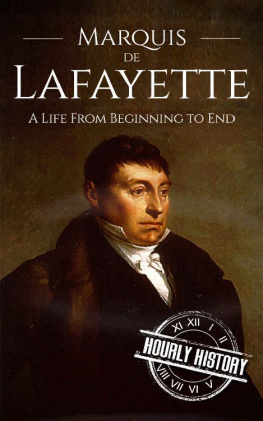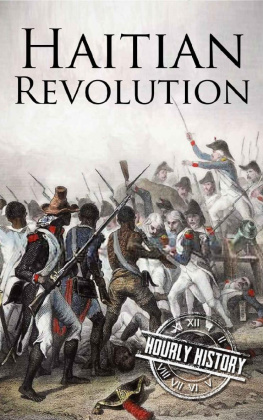Hourly History - Hittites: A History From Beginning to End (Mesopotamia History Book 5)
Here you can read online Hourly History - Hittites: A History From Beginning to End (Mesopotamia History Book 5) full text of the book (entire story) in english for free. Download pdf and epub, get meaning, cover and reviews about this ebook. year: 2016, publisher: Hourly History, genre: Romance novel. Description of the work, (preface) as well as reviews are available. Best literature library LitArk.com created for fans of good reading and offers a wide selection of genres:
Romance novel
Science fiction
Adventure
Detective
Science
History
Home and family
Prose
Art
Politics
Computer
Non-fiction
Religion
Business
Children
Humor
Choose a favorite category and find really read worthwhile books. Enjoy immersion in the world of imagination, feel the emotions of the characters or learn something new for yourself, make an fascinating discovery.

- Book:Hittites: A History From Beginning to End (Mesopotamia History Book 5)
- Author:
- Publisher:Hourly History
- Genre:
- Year:2016
- Rating:4 / 5
- Favourites:Add to favourites
- Your mark:
- 80
- 1
- 2
- 3
- 4
- 5
Hittites: A History From Beginning to End (Mesopotamia History Book 5): summary, description and annotation
We offer to read an annotation, description, summary or preface (depends on what the author of the book "Hittites: A History From Beginning to End (Mesopotamia History Book 5)" wrote himself). If you haven't found the necessary information about the book — write in the comments, we will try to find it.
Hourly History: author's other books
Who wrote Hittites: A History From Beginning to End (Mesopotamia History Book 5)? Find out the surname, the name of the author of the book and a list of all author's works by series.
Hittites: A History From Beginning to End (Mesopotamia History Book 5) — read online for free the complete book (whole text) full work
Below is the text of the book, divided by pages. System saving the place of the last page read, allows you to conveniently read the book "Hittites: A History From Beginning to End (Mesopotamia History Book 5)" online for free, without having to search again every time where you left off. Put a bookmark, and you can go to the page where you finished reading at any time.
Font size:
Interval:
Bookmark:
Copyright 2016 by Hourly History.
All rights reserved.
The cover photo is a derivative of "Yazilikaya" (https://commons.wikimedia.org/wiki/File:Yazilikaya_B_12erGruppe.jpg) by Klaus-Peter Simon, used under CC BY 3.0 (https://creativecommons.org/licenses/by/3.0/deed.en)
The past intrigues our study of ancient human empires as we look for common threads and differences in the world we live in today. By studying past cultures we can better understand humankind and piece together our collective human experience. The Hittites, who were said to have lived among gods and kings, were mysterious enough to captivate even Lawrence of Arabia. Vast inquiries into their civilization have formed the basis for extensive research gleaned from analyzing historical and archaeological information that looks to Hittite clay tablets to unearth a plausible prototype for Homer's Helen of Troy. These Indo-European Hittites settled in what would become modern day Turkey and Syria and developed a civilization that was a power to be reckoned withone that profoundly impacted the superpowers of their time and those that immediately followed. Thanks to their tradition of preservation and meticulous record-keeping, the Hittites left us with an immense amount of documentation that provides us a window into our shared past that might have remained shaky if left only to speculation, or worse remained obscured.
Through the sands of time, the Hittites have been revealed to have been cosmopolitan and devoted to becoming one of the greatest empires of all time. They throned great kings that ruled among the empires of Egypt, Babylonia and Assyria. They savagely attacked ancient Babylonia only to later hold key evidence in their magnificent excavated libraries that preserved Babylonian works from humankind's early thinkers. Their penchant for storing knowledge revealed their role in preserving customs and traditions of sophisticated Eastern cultures to the West for our shared human interest in preservation. While they are often known for their extremely disciplined tactics in times of war, they are similarly understood through further research to have shown an immensely unprecedented understanding for developing sensitivity as well as moral and ethical insights, as indicated in their reformation of laws, skilled international relations, and their written records.
These ritualistic tradition-preserving multilingual people that took oaths very seriously conquered and invaded many lands. The mysteries that surround their human struggle for power, wealth, understanding of cosmic and socio-political order, and dominion include probable cultural and political ties to the land of Troy and deepen our understanding of the precursors of ancient Greek contributions to our human advancements. Those who dared venture into Hittite territory encountered worthy opponents skilled in the art of war and diplomacy, equally at ease with conducting embargoes and raids for both conquest and peace. The great Egypt, during an era of unprecedented power and wealth, had a Hittite problem. Their wartime efforts secured for them vast resources, but also led to meaningful "brotherly" relations with the key players of the region. They were legendary, significant and meticulous.
The Hittites lived in a time when heroes and heroines of ancient civilizations could take actions that could direct entire civilizations. They asserted their ambition to be an international power and in the process have left our human story a rich treasure trove of their complex civilization as it related to the three superpowers of the time. For 3000 years, while the Hittites were the unknown fourth empire that held power between 1800 and 1200 BCE, their influence and their complex system of collective governanceseen as an early example of early Middle Eastern democracy that did not give a king absolute power in decision-makingguides us in gaining informed insight into their strengths, weaknesses, achievements, and what destabilized them and eventually led to their ruin.
In the early 1880s, the Reverend Archibald Henry Sayce and William Wright pioneered the idea that there might be another empire the world had overlooked. They conjectured that it was considered as great as the empires of Egypt, Babylonia and Assyria during the second millennium BCE. Sayce, the British clergyman who first disclosed the Hittites mentioned in the Bible to the world of scholarship, was also a premier Assyriologist and linguist, and held a chair as Professor of Assyriology at the University of Oxford. His colleague William Wright, a missionary and an author, conducted investigations while in Syria that led him to conclude that the casts he made of inscriptions that were found were in fact Hittite remains, and that a Hittite empire had at one time existed in Asia Minor and Northern Syria. Sayce had come to similar conclusions in his work.
The distribution of monuments inscribed with a distinctive form of hieroglyphic writing that looked different than known types of writing led them toward their conclusion. Upon review of cuneiform clay tablets from the 14th Century BCE found in Amarna archives, they also noticed that Egyptian kings corresponded with Hittite kings as if they had been seen as equals. Although the earliest expeditions to the area occurred in 1834 by explorer Charles Texier, their publications on the possibility of the Hittites drew attention. Hieroglyphic texts at various sites in the Taurus Mountains, Cilicia, and northern Syrian principalities flourished from the beginning of the 12th century BCE until the end of the 8th century BCE. These texts led scholars of the 19th century to postulate the existence of the Hittite Empire in the first place, although most of these texts had been actually written after their capital Hattusa had been destroyed. They were in a Luwian dialect, an unsolved mystery that the infamous Sir Lawrence of Arabia was tasked in helping renowned British archaeologist David Hogarth unravel. (His work will be discussed in the next chapter.)
Finally, in 1906, Hugo Winckler, an expert in ancient Near Eastern languages, and Theodor Makridi, an Ottoman archaeologist, discovered the royal archives of the Hittite Empire in modern-day Boazky, which was formerly Hattusa, the capital of the Hittite Empire. There they found a flood of documentary evidence that revolutionized our comprehension of who the Hittites were and the role they played in the world of the second millennium BCE. They found two major archives filled with thousands of tablets and fragments.
As opposed to other archaeological digs focused on ancient civilizations, these weren't commonplace commercial documents either. These were characterized as intellectual tools required for the political and ideological maintenance of their empire. The 1906 expedition yielded 30,000-35,000 texts and fragments representing about 3,000-3,500 original tablets. They include treaties, royal correspondences, prayers, rituals, festival descriptions, myths, literature, and laws.
While this turn of events marked a huge discovery, the archaeologists weren't the only ones now ready to decipher their written record as well as other artifacts. Philologists have been studying Hittites as students of ancient languages. Linguists attempt to reassemble the components of the family of languages to which they belong. Historians study the royal annals and other texts that help them establish the Hittite presence in the world history books. Anthropologists look at the aspects of their society that would interest us. Geologists and other earth science experts consider their natural resources and environment. Plenty of evidence compels art historians, given the number of seal impressions and rock-cut reliefs found, and there's a lot to debate about for ancient technology students and archaeologists.
Font size:
Interval:
Bookmark:
Similar books «Hittites: A History From Beginning to End (Mesopotamia History Book 5)»
Look at similar books to Hittites: A History From Beginning to End (Mesopotamia History Book 5). We have selected literature similar in name and meaning in the hope of providing readers with more options to find new, interesting, not yet read works.
Discussion, reviews of the book Hittites: A History From Beginning to End (Mesopotamia History Book 5) and just readers' own opinions. Leave your comments, write what you think about the work, its meaning or the main characters. Specify what exactly you liked and what you didn't like, and why you think so.










